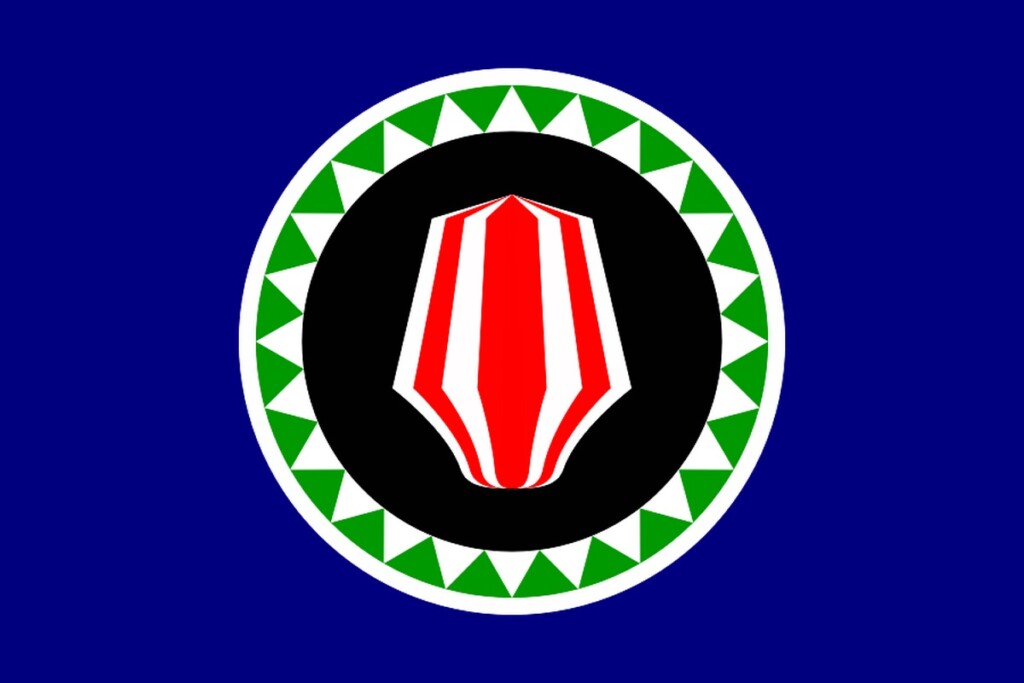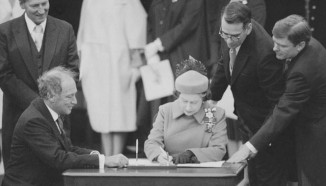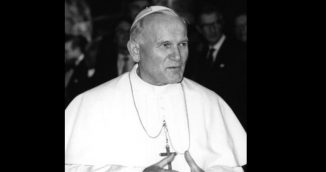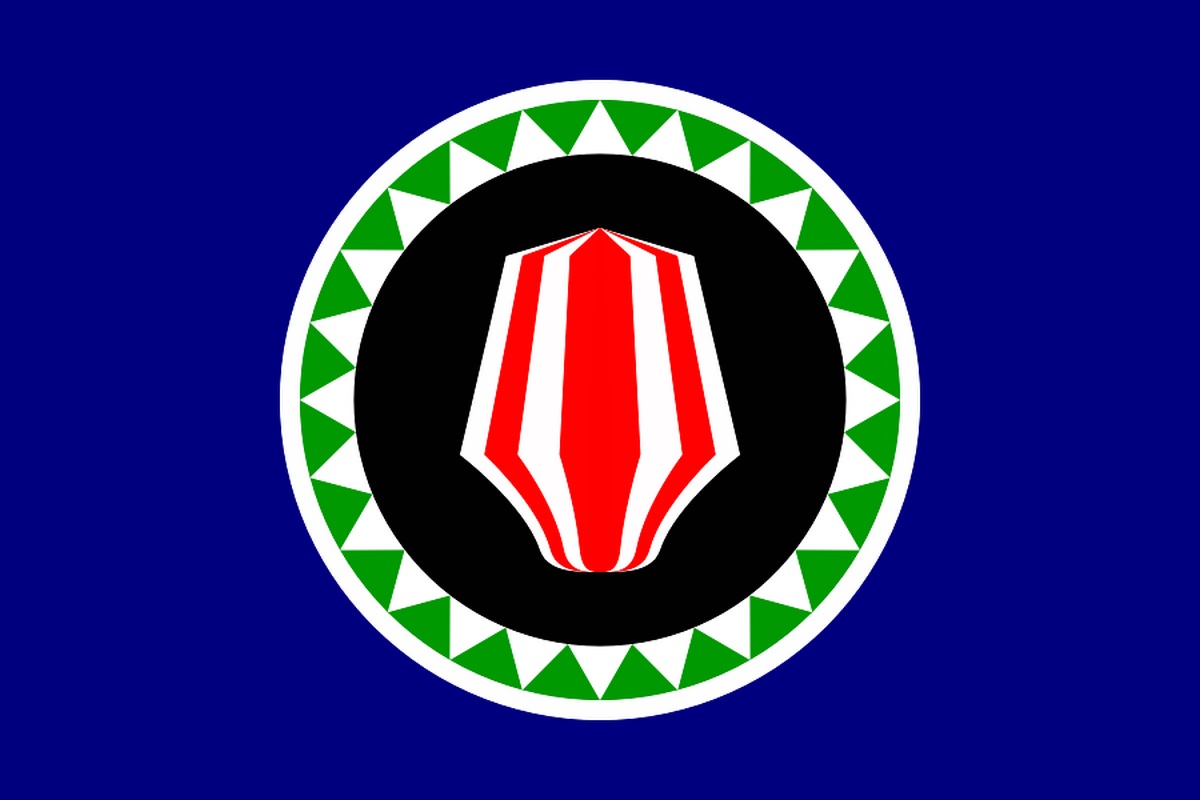5 years ago today, the residents of Bougainville, an autonomous region in Papua New Guinea, voted in a 98% majority for independence of their small island region. Unlike the Tigray independence movement in Ethiopia which just a few months later sparked a terrible civil war, the government of Papua New Guinea described the result as “credible,” to their eternal credit. The referendum was non-binding, so independence has yet to be fully negotiated, but it carried three important global consequences for good. READ about those consequences and the future of this island micro-state… (2019)

The 21st century has seen a marked decline in the rate of small states gaining independence. The rigorous, yet peaceful process by which the governments of Papua New Guinea and Bougainville negotiated the agreement, which will see the island achieve independent rule no later than 2027, is a testament to the stability of this slow-developing, fractious nation, and shows other disgruntled regions wanting independence around the world a case study for peaceful procedure.
Another consequence is a more local one. Papua New Guinea is also riven with tensions from another breakaway region known as West Papua. The acceptance of the national government that Bougainville’s residents have a right to choose their own political destiny could lead to the same in West Papua, a region with a spikier attitude toward the national government. Bougainville’s example could avoid a civil war in one of the most biodiverse countries on Earth.
MORE Good News on this Date:
- Max Born, a German physicist and mathematician who was instrumental in the development of quantum mechanics and won the 1954 Nobel Prize in Physics for his “statistical interpretation of the wave function,” was born (1882)
- The seminal film Guess Who’s Coming to Dinner starring Spencer Tracy, Sidney Poitier, and Katharine Hepburn, was released, sparking conversation about latent racism within even liberal households in America (1967)
- More than 150 countries united under the Kyoto Protocol agreeing to take steps to control greenhouse gas emissions (1997)
- Sinn Fein’s Gerry Adams became the first Irish Republican Army ally to meet a British leader in 76 years, talking with Prime Minister Tony Blair (1997)
- China joined the World Trade Organization (2001)
- Tango Day is celebrated in Buenos Aires, Argentina
On this day in 1931, the Statute of Westminster was signed, granting total legislative, executive, and judicial independence to the Commonwealth realms of Canada, New Zealand, the Irish Free State, Australia, Newfoundland, and the Union of South Africa. It created free nations across hundreds of millions of square miles, and was often adopted as principal amendments to each nation’s constitution.

“No Act of Parliament of the United Kingdom passed after the commencement of this Act shall extend, or be deemed to extend, to a Dominion as part of the law of that Dominion, unless it is expressly declared in that Act that that Dominion has requested, and consented to, the enactment thereof,” the statute reads.
“No law and no provision of any law made after the commencement of this Act by the Parliament of a Dominion shall be void or inoperative on the ground that it is repugnant to the Law of England, or to the provisions of any existing or future Act of Parliament of the United Kingdom,” it continues.
Some commonwealths adopted the statute as is, while others chose to adopt only certain sections. The Irish Free State believed that the Irish Free State Constitution Act of 1922 already entitled the Irish government to all the powers contained within the Statute of Westminster, and therefore ignored it.
In Canada, today is commemorated as Statute of Westminster Day. It’s mandated that, on 11 December, the Royal Union Flag (as the Union Jack is called by law in Canada) is to be flown at properties owned by the federal Crown, where the requisite second flag pole is available. (1931)
78 years ago today, UNICEF was established by the United Nations as an Emergency Fund to provide food, clothing, and health care to the children affected by famine and disease in Europe after World War II.
UNICEF went on to win the Nobel Peace Prize in 1965 for being an organization that provides safety for the world’s most vulnerable citizens. So far, their on-the-ground teams have improved health and education and protected children in more than 191 countries.

The agency announced this week that they are launching an NFT collection to mark their 75th anniversary and raise money to provide internet connection for every school in the world. WATCH an anniversary tribute video about how life changed for 5 children… (1946)
Also on this day, in 1964, Canadian swimmer Carolyn Waldo was born.
She nearly drowned as a 3-year-old and it took her 7 years to overcome her fear of water. At age 18, she began training in Synchronized Swimming and in 1988 became the first Canadian woman to win 2 gold medals at one Olympiad.
And, on this day in 1983, Catholic John Paul II made a “historic religious breakthrough” when he became the first pope to speak at a Lutheran church—and called for healing the 462-year-old dispute between the two Christian denominations.

The visit came during the observance of the 500th anniversary of Martin Luther’s birth—the Roman Catholic monk who led the Protestant Reformation after nailing his grievances to a door and being excommunicated for questioning his faith’s doctrine.
“The gift of this meeting moved me profoundly,” said the pontiff, who is recognized as helping to end Communist rule in his native Poland. The conservative leader significantly improved the Catholic Church’s relations with Judaism, Islam, the Eastern Orthodox Church, and the Anglican Communion, and hoped to “bring together Jews, Muslims and Christians in a great religious armada.”
Also, 299 years ago today, the American Founding Father George Mason was born.
The Virginia planter, politician, and neighbor to George Washington, refused to sign the U.S. Constitution as a delegate to the Convention. His objections influenced lawmakers, like fellow Virginian James Madison, to write, and later include, a Bill of Rights.
Mason wrote the Virginia Declaration of Rights which served as a model for the federal version, which is why he is known as the Father of the US Bill of Rights. It was ratified in 1791, a year before Mason died. Many clauses in the US Constitution also bear George Mason’s stamp, though he is mostly obscure to most Americans. (1725)
Happy 93rd Birthday to Rita Moreno, the acclaimed Puerto Rican-born singer, dancer, and actress.

Rita famously won an Academy Award for her role as Anita in the film West Side Story. She is that rare performer to be in the elite group of 15 living entertainers who have scored the ‘EGOT’—winning the grand slam of major performing arts awards: an Emmy, a Grammy, an Oscar, and a Tony. Moreno’s memoir also made her a New York Times bestselling author. She is currently touring her one-woman show of storytelling and songs, entitled An Evening with Rita Moreno.
The beautiful octogenarian co-starred in Singin’ in the Rain, and The King and I; won the Grammy (after six years on the PBS kids show) for The Electric Company LP; got her Tony for her comedic triumph on Broadway in The Ritz; and two Emmys for The Muppet Show and The Rockford Files.
She also achieved the Triple Crown of Acting, with individual competitive Academy, Emmy, and Tony awards for acting; she and Helen Hayes are the only two EGOT winners to have this honor. WATCH her talk about her life… (1931)
SHARE the Memories, Milestones, and Music…























[…] Posted From: https://www.goodnewsnetwork.org/events061211/ […]
[…] Posted From: https://www.goodnewsnetwork.org/events061211/ […]
[…] Brought to you by:- https://www.goodnewsnetwork.org/events061211/ […]
The photo of – apparently – a middle aged Queen Elizabeth signing an act of Parliament cannot be the Statute of Westminster of 1931. Then Princess Elizabeth would have been 5 years old in 1931.